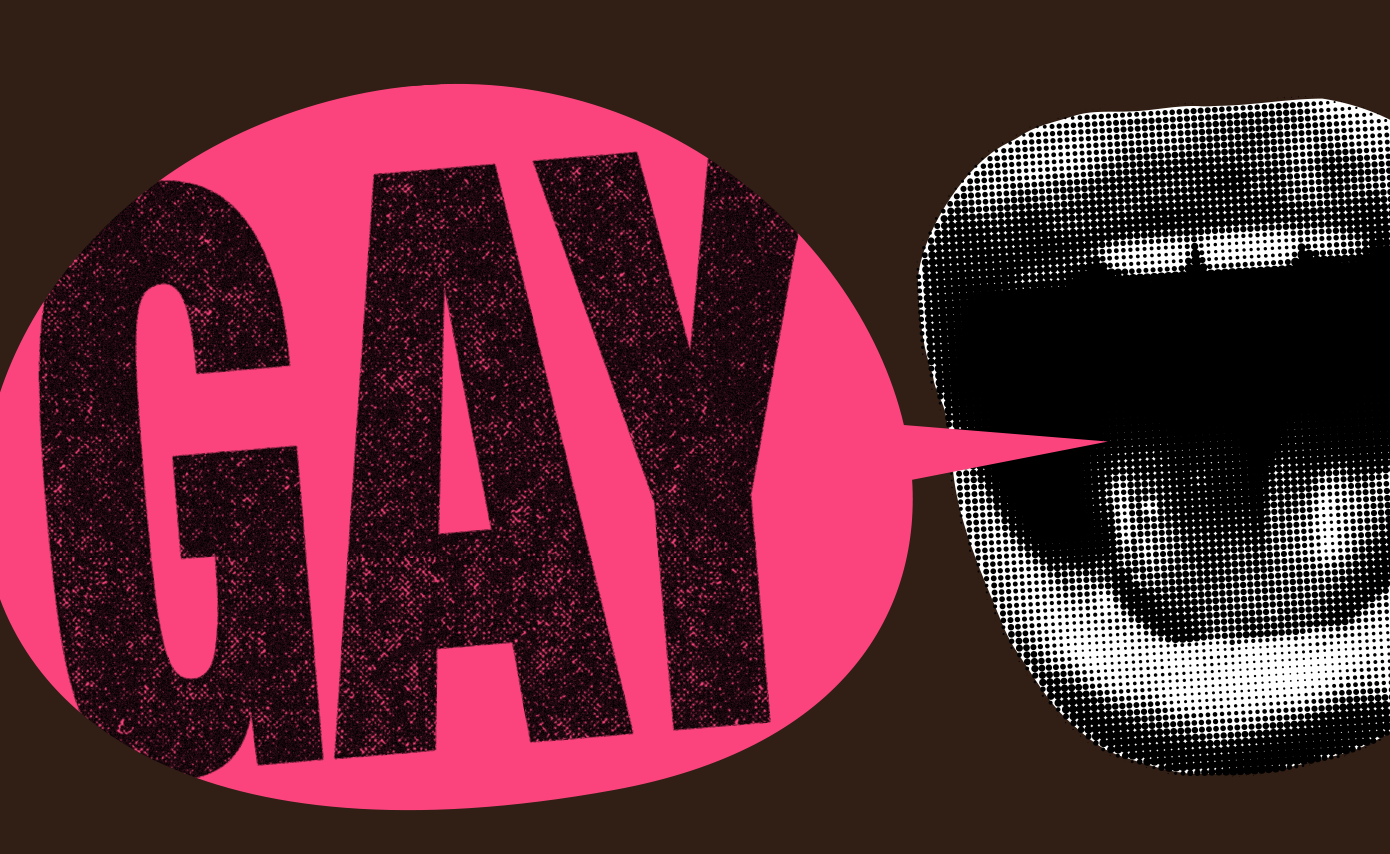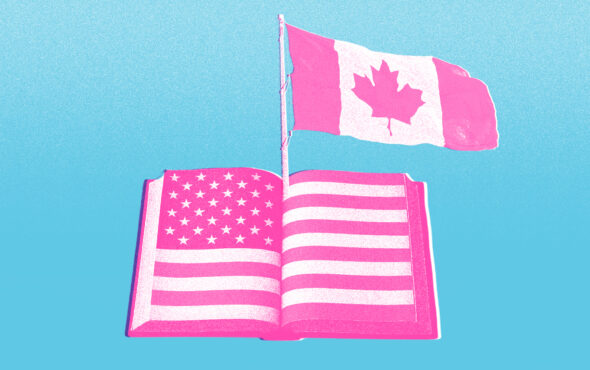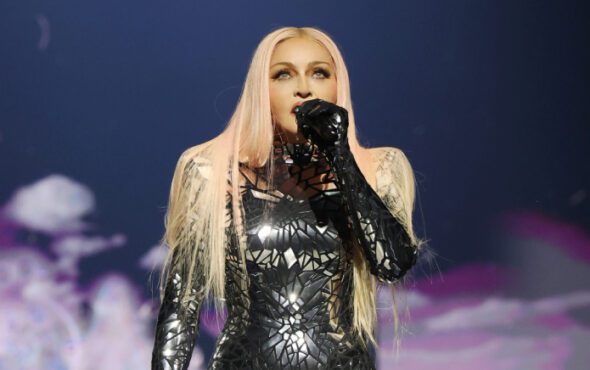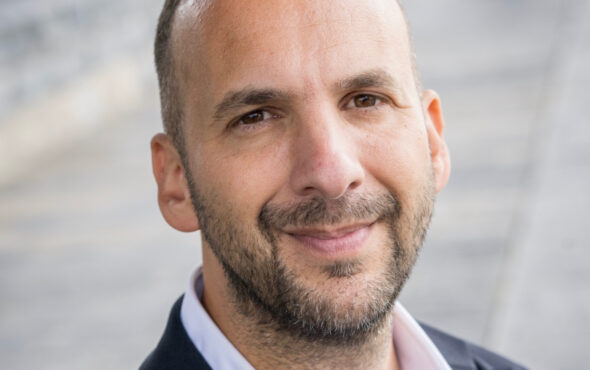
Lost in the infinite scroll of my FYP, I come across the TikTok of @undiagnosedanthony, whose bubbly promise of a fun little controversial take stops me from swiping to the next piece of soul sucking attention bait.
“I can say this as, unfortunately, I am a little bit of a homosexual,” he pauses, “calling things gay is back in, arghhh I said it,” he grimaces.
@undiagnosedanthony #gay #lgbt #bi ♬ original sound – undiagnosedanthony
The video, which now has 3.8 million views and almost half a million likes, goes on to permit using gay as a pejorative because he feels like the “gays started it”, he says.
“I can’t even help myself,” he says “When my brother is acting like a weirdo, I’m like, stop acting gay. Meanwhile, I’m roaming around kissing boys.”
While Anthony might plead with people to “sue” him for having a “sense of humour”, I can’t help but feel that, you know, *gestures at everything*. Given the current deterioration of things globally, and how this is still an improvement in some cases compared to decades passed, that, maybe, now isn’t the right time to permit “anyone” to say stuff they don’t like is gay.
I’m not the fun police, and I know this is just a silly little video on the internet, but as someone who went through the schooling system during and after the aftermath of Section 28, and stayed closeted in my sexuality for a very long time, I feel like this video is reckless, privileged and in tremendous poor taste. And, I’m not alone.
George Morton, 33, from London, says, “It’s a big no from me. I’d only say it as a complete joke to a very close friend, but otherwise no, thank you xo.”
Morton explains that, for him, the post “reeks of hot cis white man privilege” and that he feels as though it’s just been done to get attention. If that’s the case, well, mission succeeded. “It’s just completely unnecessary.”
This sentiment is shared by Alyx Weston, 35, from Leicester, who tells GAY TIMES that: “Gay as a pejorative isn’t okay because being gay isn’t a negative. Using it as a synonym for weird or dumb or horrible is just twattish—even if you’re gay.”
For Ffion Piperson, 33, from Manchester, things aren’t quite as black and white. She explains that, for her and her wife, joking around and calling things gay is a means of taking it back from people who used it against them as kids and teenagers.
“For example, a friend says something cutesy, we might retort ‘eugh, that’s gay’ and then hug them,” Piperson explains. “In this way, it’s a method of addressing sweet, loving emotions without having an overly soppy moment, even though we’re all soppy people and love each other unconditionally.”
Between the two of them and their close friends, calling stuff gay is pure sarcasm, “But we also joke that it’s a hate crime when it rains on Pride weekend, so… Humour as a coping mechanism?” Piperson adds.
This seems to be a common occurrence, as Pip, 32, from Northants, explains to Gay Times that when you’re in a safe space and surrounded by like-minded people, it’s just a bit of dark humour.
“[Sic] But again, like other dark humour, not appropriate in public or around people who you don’t know. You don’t know if you will upset someone who isn’t aware of the heavy irony, or whether it will be validation for homophobes,” Pip says, before continuing, ” If it’s genuinely meant as an insult, it’s bad. If it’s used in a pre-understood environment of safety and irony, then it’s different.”
And herein lies the difference between a couple of dark, satirical jokes made between two friends who know each other well and intimately enough to push on such a cultural bruise, and someone using that intimacy to garner likes on a social media platform. Centring yourself as the person handing out permission slips to any old Tom, Dick and Harry so long as they aren’t homophobes is dangerous for so many other people who live in an oppressed state because of their gender, race, religion and sexuality.
Abi Fellows, in her forties, from London, tells me how, just the other day, she and her son we walking along, when a child from her son’s school yelled “Gay alert!” at them.
“I went and talked to the head teacher about it because it just felt horrible,” Fellows tells Gay Times. “She [the teacher] said it’s rife. And basically coming from kids having homophobic parents.”
Fellows describes feeling quite shaken. “I’m still not sure if they meant me, or if it was because my son’s hair is long.”
This sort of policing Fellows describes is in line with the growing anti trans and gender-policing sentiments we’re seeing rise across the country.
According to YouGov, anti-trans sentiment, in particular, has increased across the board since 2022. Meanwhile, 2025 hate crime statistics from Statista reveal a worrying increase in hate crimes against all LGBTQIA+ people year-on-year.
“I do a lot of lecturing to young students at school,” begins Alice*, who is a teacher wishing to remain anonymous, who explains, exasperatedly, that trying to reverse the damage done by previous homophobic generations is an uphill struggle.
“We were brought up by a generation of homophobic, slur-using people,” she explains, “Although the video is in a lighter context, and I believe in reclaiming words and slurs, but man, this is not it.”
Lucie, 30, from Nottingham, on the other hand, wonders if this backsliding isn’t a sign of the times. “I think it’s another symptom of us as a society sinking back into conservatism,” they explain.
“It’s the same thing with the whole trad wife thing, because people are saying, “but these women are choosing that life”, but really, oppressed people are assimilating and bending in the face of growing conservatism, misogyny and homophobia.”
While Lucie wonders if she’s reading too much into things, they may just have a point…
*Name has been changed.


